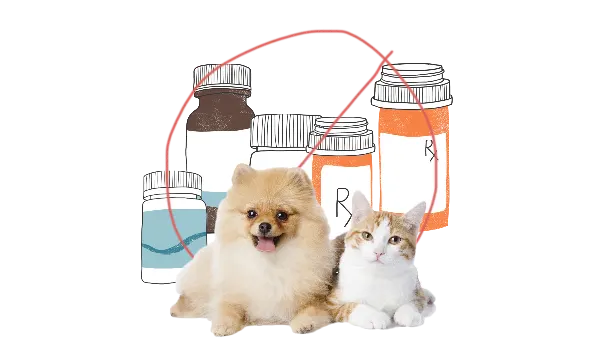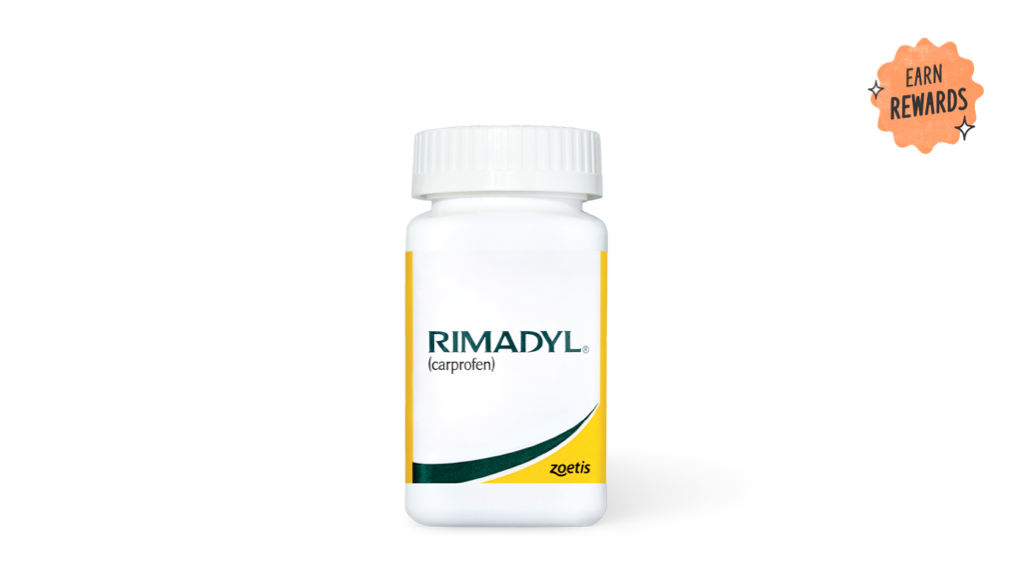
Nearly 40% of all cats and dogs are affected by osteoarthritis (OA) pain.1 With all the advances in veterinary medicine, pain is something to be proactively controlled, not lived with. We don’t want you led astray, so let’s dig in!

The Lowdown on Pain
Managing Chronic Pain
Pain from an injury is usually short-lived and meant to let your pet know that something’s wrong. However, OA pain lasts a long time and will continue to get worse without treatment.

Don’t Be Okay with OA
When we talk about chronic pain, we’re mainly focused on osteoarthritis (OA). For pets suffering with OA, pain signals start in the joint then travel beyond the inflamed area, impacting their overall health and well-being.

Read Between the Lines
Cats and dogs are masters at hiding their pain. If you can easily see their discomfort, chances are they’re in a lot more pain than they’re letting on.

Pain Points
Since no two pets are the same, it’s helpful to know a bit more about how pain affects your pet.




A Simple Solution
The good news is we have safe and effective medications to help get your pet’s OA pain under control.
Dig Deeper
Check out our vet-approved resources and guides to learn even more.

Rewards for Protecting Your Pet
Our pain relief products qualify for points with our Petcare Rewards program. Redeem them for any purchase or product at your vet.

IMPORTANT SAFETY INFORMATION
Librela
Librela is for use in dogs only. Women who are pregnant, trying to conceive or breastfeeding should take extreme care to avoid self-injection. Hypersensitivity reactions, including anaphylaxis, could potentially occur with self-injection. Librela should not be used in breeding, pregnant, or lactating dogs. Librela should not be administered to dogs with known hypersensitivity to bedinvetmab. Adverse events reported post-approval include ataxia (lack of balance/coordination), anorexia (loss of appetite), lethargy (tiredness), emesis (vomiting), and polydipsia (increased drinking). The most common adverse events reported in a clinical study were urinary tract infections, bacterial skin infections and dermatitis (skin irritation/inflammation). See full Prescribing Information.
See the Client Information Sheet for more information about Librela.
Solensia
For use in cats only. Women who are pregnant, trying to conceive or breastfeeding should take extreme care to avoid self-injection. Allergic reactions, including anaphylaxis, could potentially occur with self-injection. Solensia should not be used in breeding cats or in pregnant or lactating queens. Solensia should not be administered to cats with a known allergy to frunevetmab. The most common adverse events reported in a clinical study were vomiting and injection site pain. Solensia may be associated with scabbing of the head and neck, dermatitis, and pruritus. See full Prescribing Information.
Rimadyl
As a class, NSAIDS may be associated with gastrointestinal, kidney and liver side effects. These are usually mild, but may be serious. Pet owners should discontinue therapy and contact their veterinarian immediately if side effects occur. Evaluation for pre-existing conditions and regular monitoring are recommended for pets on any medication, including Rimadyl. Use with other NSAIDS or corticosteroids should be avoided. See full Prescribing Information.
- Enomoto, M, et al., Vet Rec, 2019
- Anderson KL, Zulch H, O’Neill DG, Meeson RL, Collins LM. Risk factors for canine osteoarthritis and its predisposing arthropathies: a systematic review. Front Vet Sci. 2020;7:200. doi:10.3389/fvets.2020.00220







